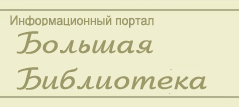Другое : English schools
English schools
English schools
English children must go to school when they are five.
First they go to infant schools, where they learn the first steps in reading,
writing and using numbers.
When children leave the infant school, at the age of
seven, they go to junior schools until they are about eleven years of age.
Their school subjects are English, arithmetic, history, geography, nature
study, swimming, music, art, religious instruction and organised games.
Towards the end of their fourth year in the junior
school English schoolchildren have to write their Eleven Plus Examinations, on
the result of which they will go the following September to a secondary school
of a certain type. About 40% of elementary school leavers in Britain go to
secondary modem schools. Modem schools are the most popular secondary schools,
but they do not provide complete secondary education, because study programmes
are rather limited in comparison with other secondary schools.
The secondary technical school, in spite of its name,
is not a specialised school. It teaches many general subjects. The grammar
school is a secondary school which offers a full theoretical secondary
education including foreign languages, and students can choose which subjects
and languages they wish to study. They leave the school after taking a
five-year course. Then they may take the General Certificate of Education at
the ordinary level. The others continue their studies for another two or three
years to obtain the General Certificate of Education at the advanced level,
which allows them to enter university. The comprehensive school combines in one
school the courses of all types of secondary schools. There are many schools in
Britain which are not controlled financially by the state. They are private
schools, separate for boys and girls, and the biggest and the most important of
them are public schools. They charge high fees and train young people for
political, diplomatic, military and religious service. Other non-state schools
which charge fees are independent and preparatory schools. Many of the
independent schools belong to the churches. Schools of this type prepare their
pupils for public schools.
Список
литературы
Для подготовки
данной работы были использованы материалы с сайта http://english-language.chat.ru/
|


